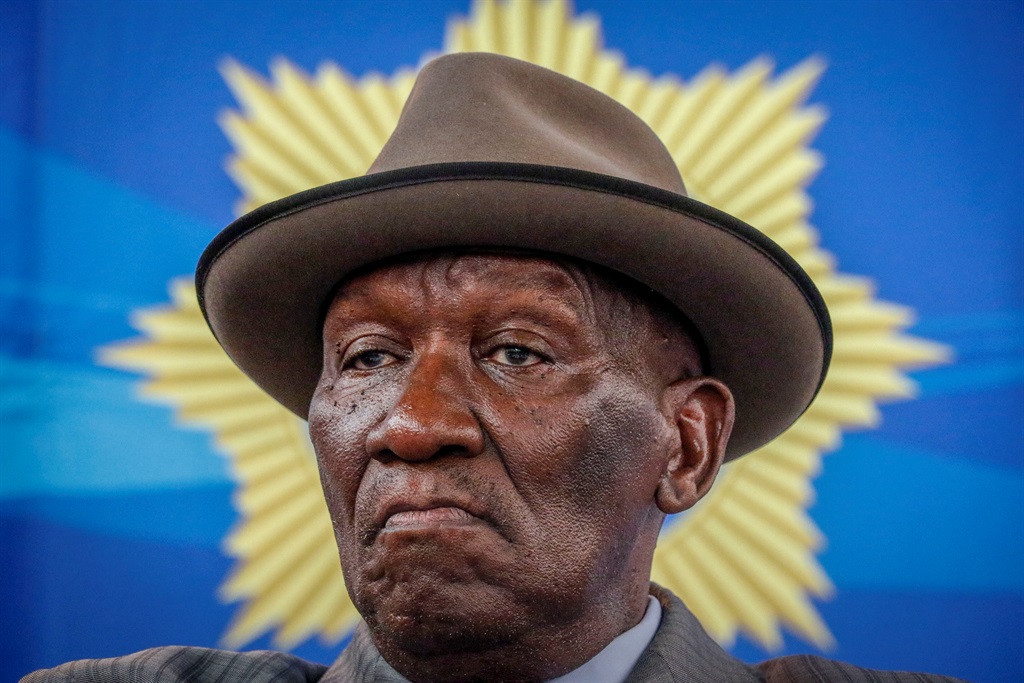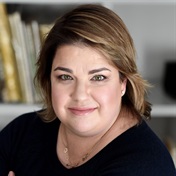
There is a reason that many of the world's most wanted criminals seek refuge in South Africa, adopting pseudonyms and living comfortable lives without popping onto local authorities' radar, writes Mandy Wiener.
This week, officers from the South African Police Service (SAPS) walked into an apartment in Sandton and arrested a 64-year-old Danish woman who was on that country's "most wanted" criminal list.
Anna Britta Nielsen had been negotiating to hand herself over to authorities but when she failed to do so, the cops swooped. According to those in the know, it was difficult to identify her because she had changed her hair colour and lost weight whilst hiding out in South Africa.
Visit News24 Voices for informed and expert opinions on the news
Nielsen and her son Jimmy Hayat were wanted in connection with a massive R247m fraud in a case that has captured the attention of Danes. She had been an employee of the Danish Ministry for Social Affairs for over 40 years and is suspected of transferring government funds intended for the most vulnerable in society to her own accounts between 2002 and 2018.
Her son Jimmy Hayat was arrested by SAPS at OR Tambo International Airport on his way out of the country. Police found R5000 cash on him and two diamonds in his bags. Over R600 000 in cash was also found on his mother when she was taken into custody.
The fraud was discovered by Danish authorities six weeks ago and according to Police Minister Bheki Cele, local officials were only notified of the duo's presence in the country two weeks ago. It's been a big story in Denmark, where graft of this nature is rare. In comparison, it's barely been reported on in South Africa, in a week where senior cops including the former Gauteng provincial commissioner of police have appeared in court on corruption charges.
The police must be commended for their swift action in arresting Nielsen and Hayat. However, the obvious question that is being asked is why, of all the countries in the world, they chose to hide out in this one at the bottom tip of Africa. According to those close to the case, after Nielsen's husband died, she visited South Africa on holiday, fell in love with the country and proceeded to buy several properties here.
In Denmark, this case has become a symbol of the decline in confidence in trusted institutions. The same argument can be made locally about how it highlights the lack of confidence in institutions that are meant to enforce the law. There is a reason that many of the most wanted criminals across the globe are seeking refuge in South Africa, undetected, adopting pseudonyms and living comfortable, cushy lives without even popping onto the radar of local authorities.
In August, a Bulgarian man convicted of killing a pharmacy student in an attack outside a nightclub in Sophia, was arrested in the Eastern Cape. Vili Georgiev had been on the run for four years before he was taken into custody by the Hawks at Amsterdamhoek. He had absconded in 2014 as he was due to start an 18-year jail sentence. The case sparked an outcry in Bulgaria and mass protests. Astonishingly, Georgiev was granted bail by the Port Elizabeth Magistrate's Court as an extradition process is underway. Again, there's been little mention of it in the local media.
Then there's the litany of organised crime and mafia related characters who have been living under the radar in South Africa while on the run from authorities in their respective homelands. Czech fugitive Radovan Krejcir hardly kept his head down, but he gathered around him many who did. His countryman Jan Charvat was on the Czech Republic's "most wanted" list and officials only discovered who he was when he was killed in a bomb blast at Krejcir's Money Point offices.
There's also the astonishing story of Serbian Dobrosov Gavric, aka the 'Arkan Slayer', who had adopted the pseudonym of Sasha Kovacevic. He lived in Joburg and Cape Town, opened businesses, bought properties and got official identity documents under a false name. Officials only established his true identity when he was wounded while driving security boss Cyril Beeka during his assassination in 2011.
More recently, two Serbians with links to organised crime and histories in paramilitary organisations have been shot in hits in Joburg. Milan 'Miki' Duricic, along with Gavric, was also wanted in his home country for the killing of Serbian warlord Zeljko 'Arkan' Razatovic in 2000. Meanwhile, alleged mobster Darko Kulic who was killed in July, had fought in the Serbian Guard and also served twelve years in prison for the murder of a rival mobster before coming to South Africa.
There are many more examples which perpetuate the belief that South Africa is a prime spot for criminals on the run. Experts suggest it is because of our high standard of living and advance banking and business systems, coupled with the ineffectiveness of law enforcement and its susceptibility to corruption. I'll never forget Krejcir telling me outside court during an appearance that he chose Johannesburg as his home because of the incredible criminal justice system here, amongst other reasons, of course (like sunshine and braais).
This week, following the arrest of the Danish duo, Minister Cele commended police for their swift action in making the arrests and emphasised that he hoped the breakthrough will send a message to others who want to come to South Africa to evade the law.
"Arrests of this nature also serve as a warning to all other people who commit crimes and seek refuge in our country: South Africa is not a safe haven for criminals‚" he said.
Let's hope that they will heed Cele's warning and more arrests of those on "most wanted" lists will help signal to syndicates worldwide that South Africa is no longer an option for them.
- Wiener is an investigative reporter for News24.
Disclaimer: News24 encourages freedom of speech and the expression of diverse views. The views of columnists published on News24 are therefore their own and do not necessarily represent the views of News24.




 Publications
Publications
 Partners
Partners























